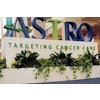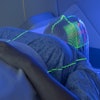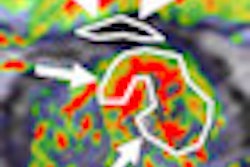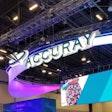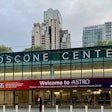Radiofrequency (RF) ablation is a practical treatment for elderly patients with non-small cell lung cancer (NSCLC) who are poor candidates for surgery, according to a study published in the April issue of the Journal of Vascular and Interventional Radiology.
Additionally, the study from Brown University's Warren Alpert Medical School in Providence, RI, showed that treatment costs for the rest of these patients' lives were nearly half the cost incurred by patients who instead underwent surgical resection.
The study compared the mortality of 84 patients, all older than age 65, and the Medicare costs associated with treating them for early-stage NSCLC, either with limited surgical resection or radiofrequency ablation (J Vasc Interv Radiol, April 2013, Vol. 24:4, pp. 476-482).
Co-author Dr. Damian Dupuy, from the department of diagnostic imaging, and colleagues sought to investigate whether the less-invasive RF ablation treatment was comparably effective to surgery. And although the study did not address the subject, it indirectly raises the question of whether very elderly patients would have a shorter life of better quality if they opt for the less-invasive procedure of RF ablation, even if they qualify for surgery.
The retrospective study included patients who had received treatment for stage IA or IB NSCLC between August 2000 and October 2009. Only patients undergoing wedge resection or segmentectomy were included in the surgery group, which totaled 28 patients (age range, 67 to 79 years). Patients undergoing lobectomy were excluded because they were healthier and would have imparted a survival advantage.
The 56 patients who received RF ablation ranged in age from 71 to 84. They were in poor health, had other medical conditions that made them too great of a surgical risk, or had refused surgery.
The overall mortality rate was lower for the surgical patients compared to the RF ablation group, according to the researchers. Those in the RF ablation group had a 3.3 times greater risk of death than the surgical patients. One-, two-, and three-year survival rates for the surgical group were 100%, 95%, and 83%; for the RF ablation group, the rates were 91%, 73%, and 55%, respectively.
Costs associated with the initial treatment were analyzed, along with subsequent healthcare costs related to postprocedure complications and all postprocedure major health events until time of death or the cutoff date of June 1, 2010. Patients who had undergone surgery spent more time in the hospital before being discharged and had more serious complications within 30 days. For example, 21% of the surgical patients experienced a cardiac abnormality, compared with none of the ablation patients.
The median cost per month of remaining life of a surgical patient was $1,196, ranging from $993 to $1,957. By comparison, the median cost per month for an RF ablation patient was $621, ranging from $167 to $1,302. The researchers had adjusted costs to reflect 2009 Medicare payments.
For the initial treatment alone, Medicare reimbursements in Rhode Island in 2009 ranged from $17,000 to $44,550 for surgery and from $3,165 to $3,385 for RF ablation.
"For patients with NSCLC who are not candidates for surgical treatment, RF ablation provides an alternative treatment option at a fraction of the cost," the authors concluded. "Long-term, randomized trials with adequate follow-up are necessary to conclusively compare the efficacy of RF ablation, surgical resection, and other less-invasive therapies such as [radiation therapy]."


